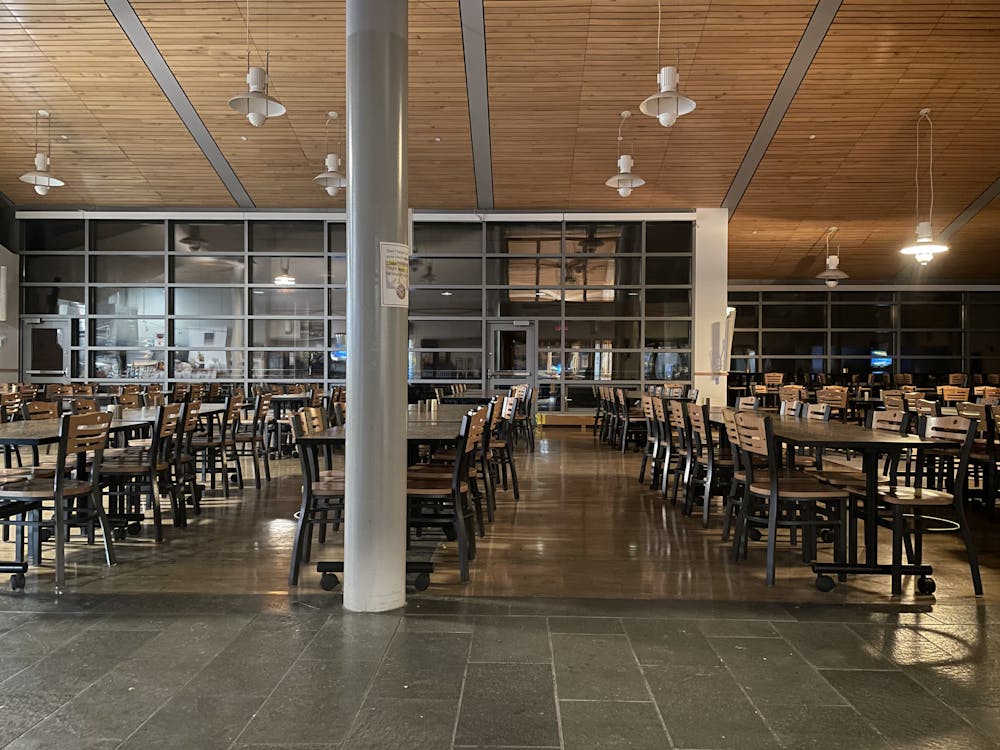Many students eating at Middlebury’s dining halls over the past few weeks have noticed changes in the availability of some meal-time offerings, including Nutella and weekend-morning smoked salmon. Though some students speculated about budget cuts, the real reason some items have disappeared from serveries across campus is inflation.
“We have never seen prices jump as quickly as they have this past year,” wrote Dan Detora, director of dining services, in an email to The Campus.
U.S. inflation has hit 5.4% year-over-year and 0.6% month-over-month, according to reporting from the Associated Press, and Middlebury’s Dining Services department has not been spared. The college’s food costs have risen in recent months, and according to Detora, individual items increased in price anywhere from 7–30%.
“We are looking for ways to lower our food costs in a manner that has the smallest effect on student satisfaction,” Detora said.
Detora expressed a hope that although food prices will stay elevated, the rate of increase will fall back to the normal level of around 3% per year.
“We are not hitting the food budget by a substantial amount due to the increases in prices,” he noted.
For the 2022–23 academic year, the cost of on-campus housing and the meal plan (a combined charge) at Middlebury was $17,800 while it has been set at $18,600 for the 2023–24 academic year. The change represents a 4.5% increase, which still lags behind inflation.
According to Detora, salmon will return to one of the dining halls each weekend morning, in a return to the pre-Covid-19 menu.
As for Nutella, the reason for its disappearance extends beyond cost concerns.
“We have multiple issues with procurement due to a hazelnut shortage, but more importantly we removed [it] due to environmental and sustainability concerns based on the palm oil that is used to make it,” Detora said.
According to reporting from Business Insider, the world is currently facing hazelnut scarcity and higher prices — which has led to increasing Nutella prices — as a ramification of the financial crisis in Turkey, which produces 70% of the world’s supply. The nation’s currency crisis has made fertilizers and seeds more expensive for farmers, which has caused both lower overall production and higher production costs — and increased scarcity in the market.
Increased demands for palm oil, the ingredient that makes up around 32% of Nutella, according to The Guardian, has caused severe deforestation in tropical regions as forests are cleared to increase plantation acreage.
Limiting the consumption of Nutella, and thus the support of the palm oil industry, appears to be in line with the college’s sustainability goals.
“Our goal is to provide the highest quality and best tasting food to our students as well as to create a dining experience that engages with our community and our environment,” according to the Middlebury College Dining Services website. The college has worked to meet its food-related sustainability goals by spending 32% of its food budget locally and composting over 300 tons of food.
There’s still good news for chocolate-hazelnut lovers, though. Detora may have a solution on the way.
“We are experimenting now with making our own [Nutella], and we hope to provide something soon,” he told The Campus.
Ben Wagner (he/him) is a Local Editor.
Wagner has previously served as an SGA Writer and Staff Writer. He is an IGS-Global Environmental Change major, and is minoring in Religion. When not up to other shenanigans, Ben loves playing outside and riding his bike.




